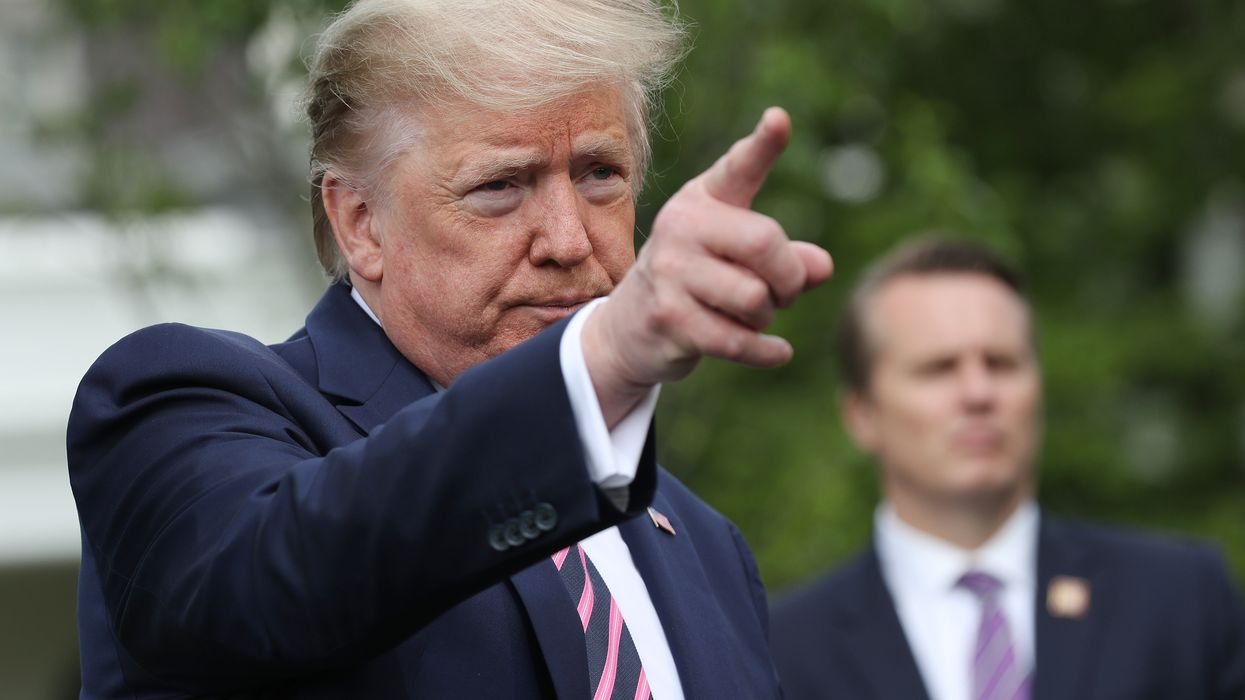Coleman was an assistant Missouri attorney general and later a Republican member of the House of Representatives from 1976 to 1993. Now retired as a lobbyist, he is an advisor to the Protect Democracy Project, an anti-authoritarian watchdog group.
Since taking office more than three years ago, President Trump has consistently shown a complete lack of understanding of the fundamental precepts of our constitutional system.
He doesn't fathom the doctrine of separation of powers, the limitations placed on a president through the Constitution's checks and balances. And he doesn't comprehend the foundation upon which all of it rests — the rule of law. All of which raises the question: Will Trump become an unaccountable dictator?
Last year Trump asserted he could personally take over special counsel Robert Mueller's investigation into possible Russian influence in the 2016 election and his own role in it "if I wanted to." Emboldened after being acquitted by the Senate on the House's impeachment charges, he said, "I'm actually, I guess, the chief law enforcement officer of the country." And he has claimed that, as president, the Constitution gives him "the right to do whatever I want."
Most Americans had never considered an American president would speak such words. They are the musings of a monarch from centuries ago, or a dictator ruling in a banana republic.
It's doubtful the president came up with these constitutional perversions by himself. Assistance was surely provided by his current White House counsel, Patrick Cipollone, and Attorney General William Barr. Both are leading proponents of what's known as the unitary theory of the executive, an extreme doctrine of presidential power that has no legal boundaries. It is radical, wrong, undemocratic — and dangerous.
This theory is as obscure as it is controversial. It is a viewpoint that proponents argue is found in Article II of the Constitution: "The executive power shall be vested in a president of the United States of America." Those words have been variously interpreted to theoretically invalidate any statute passed by Congress that denies the president "exclusive control" over a "purely executive" power — and thus violating the principle of the separation of powers in the Constitution.
Other supporters of the theory take a more extreme view. They consider independent federal regulatory agencies as illegitimate, since they are structured to be insulated from presidential control. They believe Congress has no power to demand information from any part of the executive branch. And they assert that executive authority, under the Constitution, gives a president whatever powers are left specifically unchecked by either Congress or the courts.
Advocates of the theory posit that Congress cannot compel executive branch personnel to appear on Capitol Hill, even under subpoena. Not surprising, these were the same arguments put forth by Trump's lawyers in several court cases brought by the House against the president. They also served as a cornerstone of Trump's defense in the Senate impeachment trial.
While not the first presidential proponent of the theory — George W. Bush referred to it in more than 161 bill-signing statements — Trump has taken it to a significantly higher level.
Consider if Trump really has all the powers he thinks he should have. If only the president could determine what presidential powers exist, then a president could do more than act whenever Congress had not set specific parameters on a given topic. Under this extreme theory, his unilateral actions, even in the face of explicit congressional opposition, would be nonetheless constitutional.
This is precisely the issue now before the federal Court of Appeals for the D.C. Circuit. Is it appropriate for the House to challenge Trump's decision to build a wall on the southern border with funds not appropriated for that purpose?
Richard Nixon pretty well summed up the essence of the unified theory of the executive this way: "When the president does it, that means it's not illegal."
If Trump continues to lean on this crackpot theory to justify his governing decisions, it will have historical consequences for our nation. He would end our democracy based on the rule of law and replace it with an unaccountable dictatorial king.
The proponents of the unitary theory of executive power have constructed an alternative Constitution in much the same way Trump has used what his aides describe as "alternative facts" to conjure an alt reality.
If that sounds scary, well, it is. This president believes he has found the keys to the kingdom made possible by this discredited constitutional theory. It makes him, effectively, a king.
To overcome and reverse Trump's actions, we are encouraged by the wise counsel of Justice Robert Jackson, who came up with a famous test for evaluating claims of presidential power in a 1952 opinion preventing President Harry Truman from taking over the steel mills to avoid a strike during the Korean War.
"With all its defects, delays and inconveniences, men have discovered no technique for long preserving free government except that the executive be under the law, and that the law be made by parliamentary deliberations," he wrote.
It's time for Congress and the courts — and the voters — to act accordingly, before it's too late.



















Trump & Hegseth gave Mark Kelly a huge 2028 gift